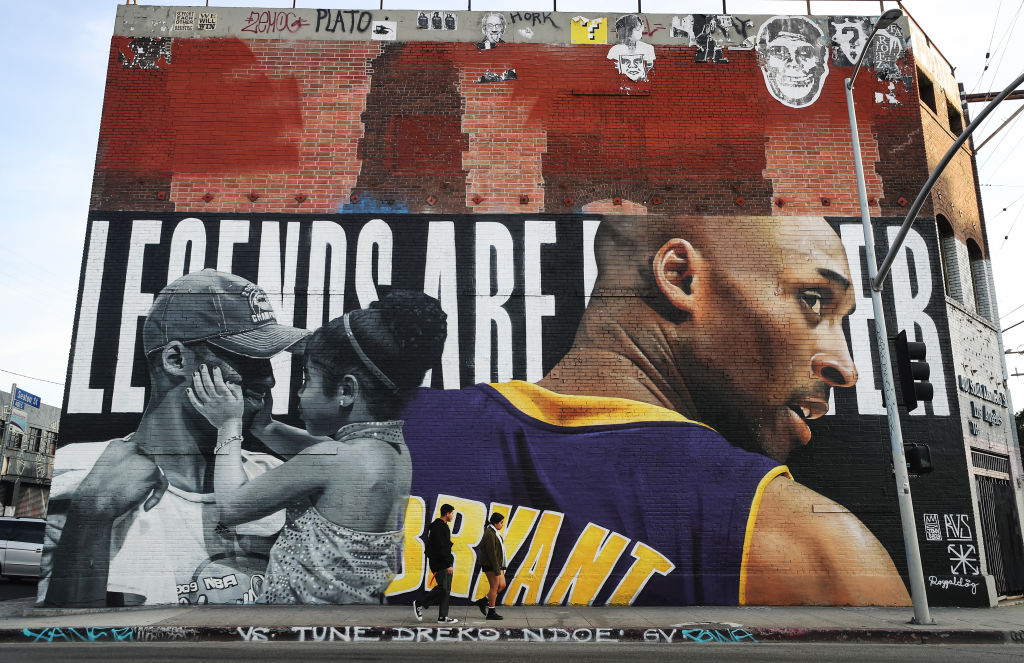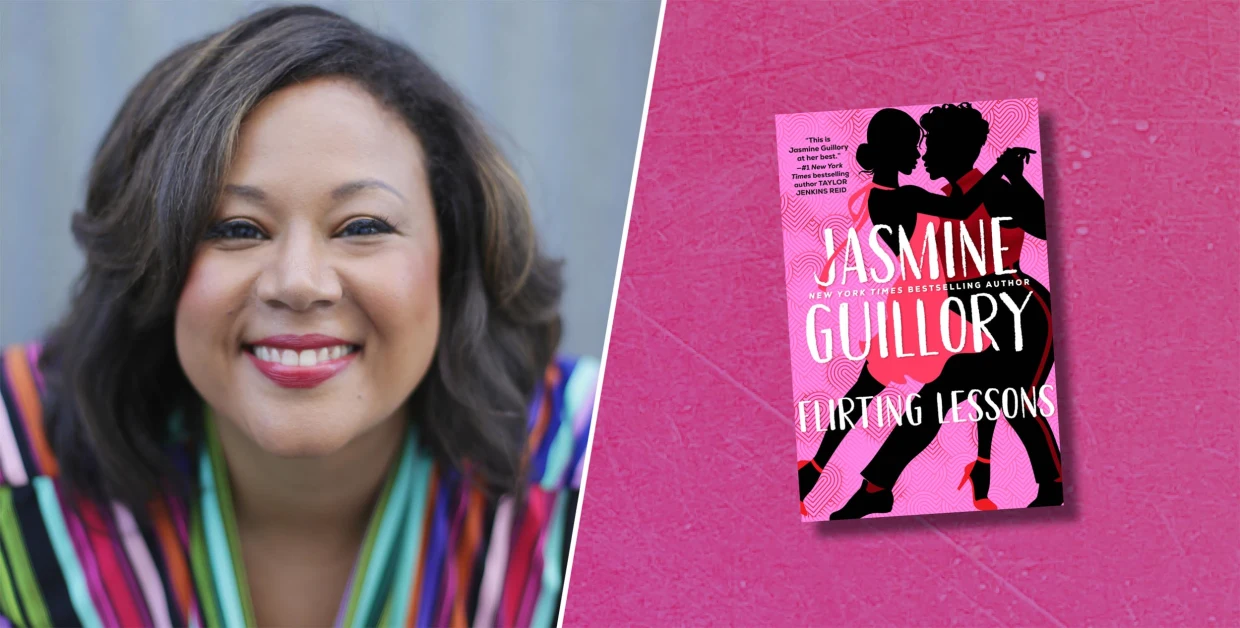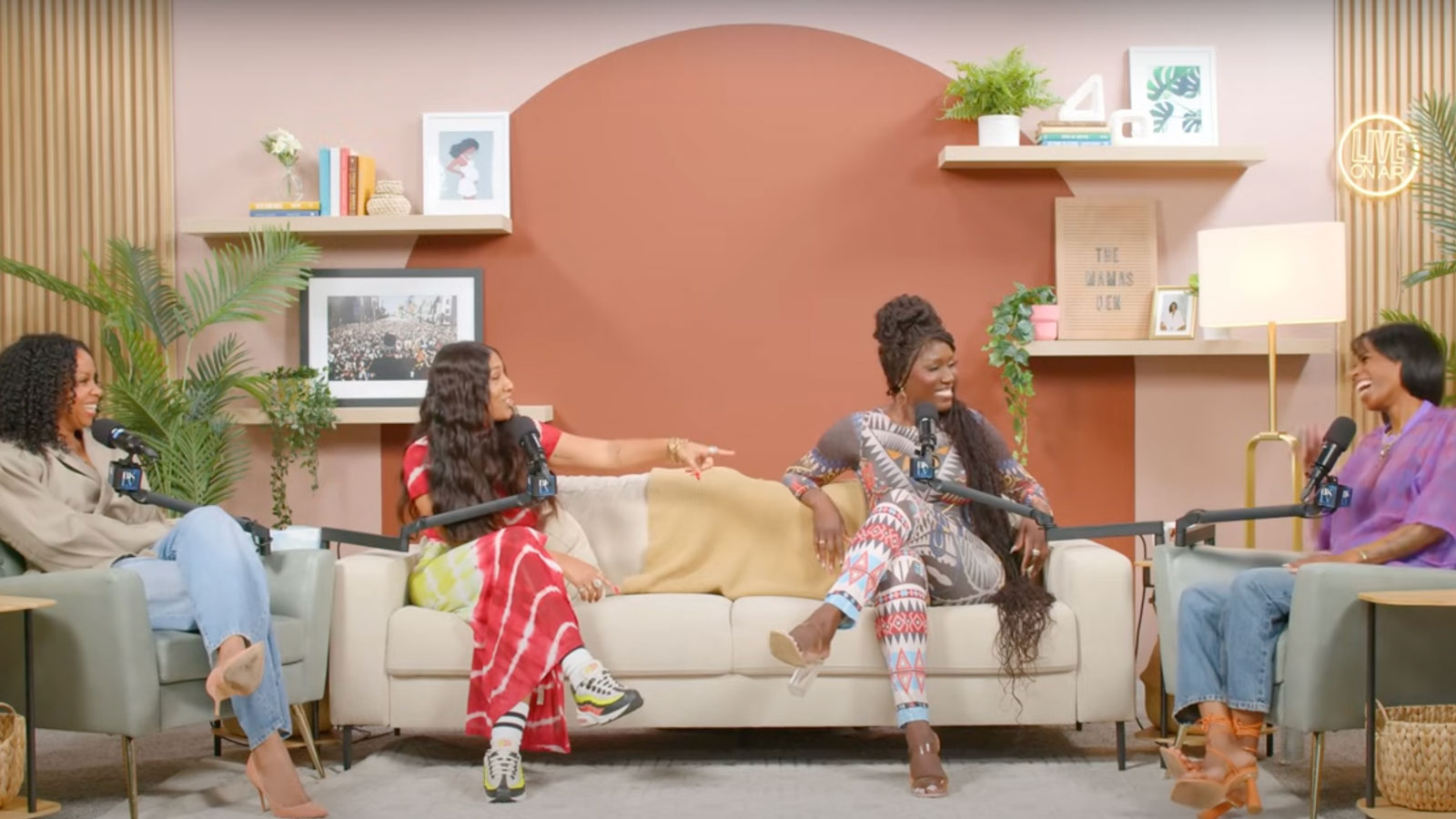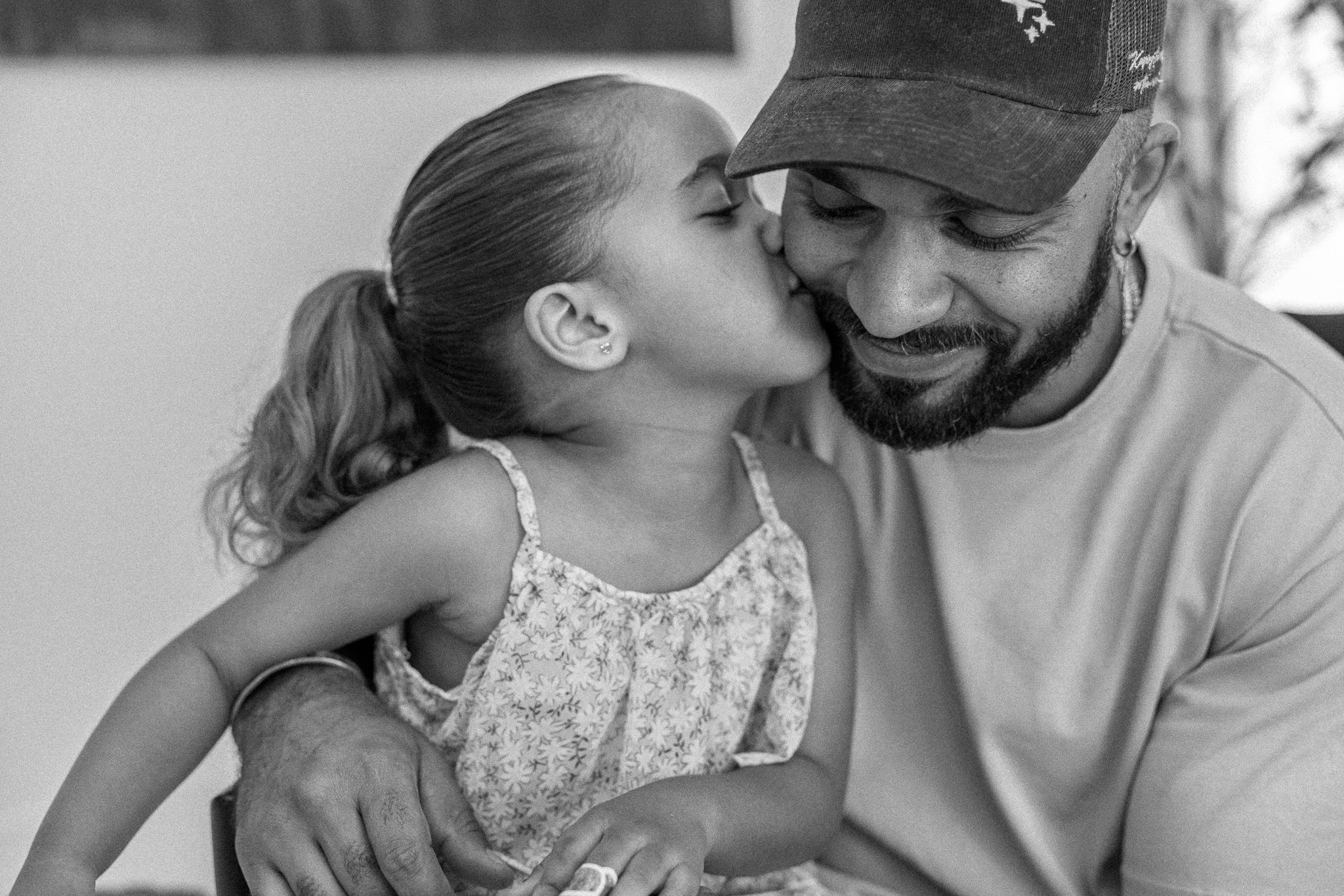
Los Angeles Lakers Legend Kobe Bryant Memorialized Across L.A. In Murals
A mural depicting late NBA star Kobe Bryant and his 13-year-old daughter Gianna, painted by Royyaldog, is displayed on a building in Los Angeles, California. (Credit: Mario Tama/Getty Images)
I remember it like it was yesterday. It wasn’t my personal loss, so I don’t know why I remember it vividly, but I do. I was watching 106 & Park on BET and saw the announcement that one of my favorite performers passed away. The singer Aaliyah died, and I was heartbroken, I cried gut-wrenching tears.
It didn’t make sense to me then because I was the one who never understood why people cried over celebrities they didn’t know. So, how could I be affected by the death of someone I never met? I’ve lost many family members and felt my grief should be reserved for the people who held physical space in my life. I didn’t have a relationship with Aaliyah, yet I felt an enormous amount of pain, sadness, and disbelief.
How do you move forward and address the validity of your sorrow?
https://www.instagram.com/p/B77K8XWDY7O/
With the recent, tragic loss of Kobe Bryant, his daughter and the other victims in the fatal crash, it has brought some of us here yet again. A community enwrapped in the shared experience of love and loss through death. Because of our limited understanding of grief, many of us don’t believe we have the right to grieve in this capacity. Has our mourning been disenfranchised?
Disenfranchised grief is grieving the loss of someone that we often don’t believe we have a legitimate reason to experience triggered emotions. One of the universal complexities is there is no typical way or reason to grieve. Even acceptable losses become complex when we lose people in ways that are deemed unacceptable. But there is no casserole you can whip up in the kitchen and pass along to express your condolences when you lose someone you don’t know. So how do you move forward and address the validity of your sorrow?
Related: Wellness Wednesdays With Dr. Ally
I would encourage you to focus on what you are feeling and take time and make space to tune into your needs of experiencing something very real to you. A little soul searching is required by reflecting and sitting with your intimate thoughts. Creating space for disenfranchised grief requires an understanding that your pain is significant and valid, even if others just don’t get it. Know for yourself that the things that hold space in your mind deserve your attention.
Engage in activities and outlets that allow you to honor the memory of the person or thing that you are grieving. Despite who or what you are lamenting, feeling the wave of emotions is a natural part of the process. By acknowledging your own worthiness to experience, your sensitivity to the situation is a useful first step in healing from the pain of loss.
Creating space for disenfranchised grief requires an understanding that your pain is significant and valid, even if others just don’t get it.

A mural depicting late NBA star Kobe Bryant and his 13-year-old daughter Gianna, painted by Royyaldog, is displayed on a building in Los Angeles, California. (Credit: Mario Tama/Getty Images)
For those on the opposite end of the spectrum who are supporting someone experiencing disenfranchised grief, with you, it begins by acknowledging their hurt is legitimate, and it matters. This may not be possible for everyone, but it’s okay. If you find yourself in the vicinity with someone who is grieving and you’re unable to recognize their emotions, then respect their need for time, space, and mental clarity. Unfortunately, with social media, many of us have fallen victim to cruelly criticizing others.
That’s why it’s essential to avoid expressing personal reasons or beliefs about why someone’s grieving process is invalid. By doing so, it creates a healthy environment for both you and the other person. But if you are the support person in the situation, don’t forget about your self-care. Be attuned to how you also respond. Take time to acknowledge the impact that seeing a loved one in emotional pain affects you and don’t neglect to care for yourself in those moments.
Related: Taking Off My Cape: Letting Go of the Superwoman Syndrome
As we remember, the Bryant family, and continue the celebration of life for Kobe, Gianna, John, Keri, Alyssa, Sarah, Payton, Ara, and Christina, let’s continue to be mindful that grief is a process unique to each individual. There is no set time frame or way to express the hurt a situation may cause you. Most importantly, remember to care for yourself because grief is not easy, whether it’s dealing with a personal loss or celebrity loss. It’s not only an emotional process but a physical one as well.

Related Articles
Discover why Jasmine Guillory’s latest novel Flirting Lessons is a must-read—and how the author continues to redefine modern romance with layered Black heroines, real emotional depth, and Black literature that feel both magical and true.
Bozoma Saint John talks Black motherhood, grief, self-love, and finding joy again. Don’t miss her powerful conversation on building legacy and living boldly.
Tyler Lepley shows the beauty of Black fatherhood, blended family life with Miracle Watts, & raising his three children in this Father Noir spotlight.
Featured Articles
When Elitia and Cullen Mattox found each other, they decided that they wanted their new relationship together, their union, to be healthier and different.
Celebrate their marriage and partnership with the release of the documentary “Time II: Unfinished Business”
Our intent is to share love so that people can see, like love really conquers everything. Topics like marriage and finance, Black relationships and parenting.
The vision for our engagement shoot was to celebrate ourselves as a Young Power Couple with an upcoming wedding, celebrating our five year anniversary - glammed up and taking over New York.
Meagan Good and DeVon Franklin’s new relationships are a testament to healing, growth, and the belief that love can find you again when you least expect it.
HEY CHI-TOWN, who’s hungry?! In honor of #BlackBusinessMonth, we teamed up with @eatokratheapp, a Black-owned app designed to connect you with some of the best #BlackOwnedRestaurants in YOUR city – and this week, we’re highlighting some of Chicago’s best!











